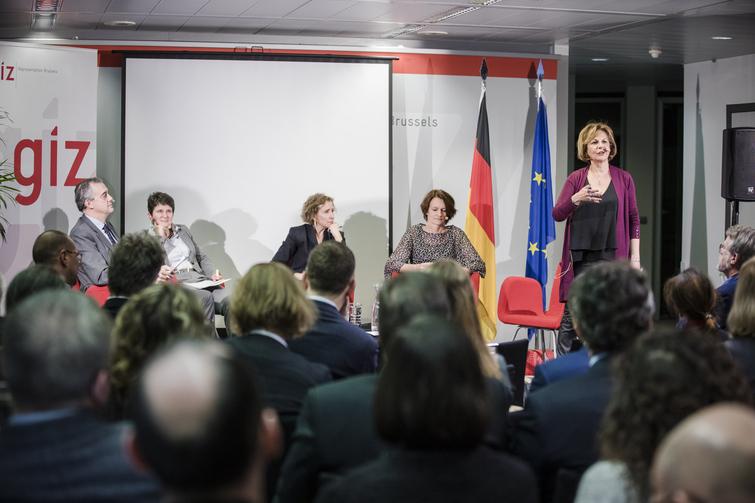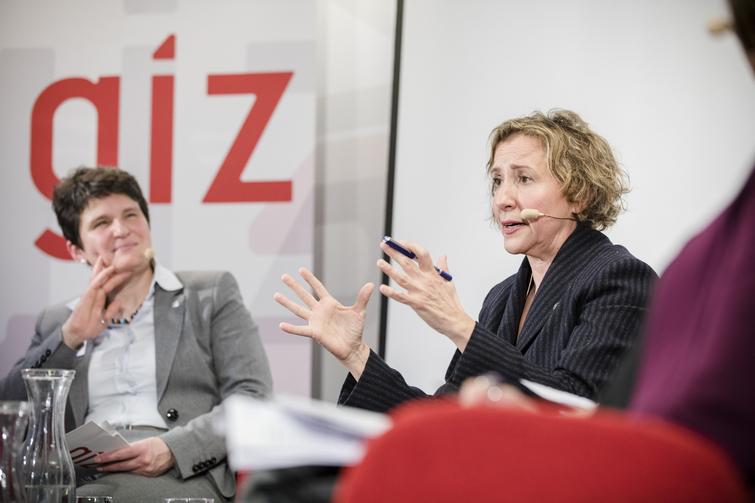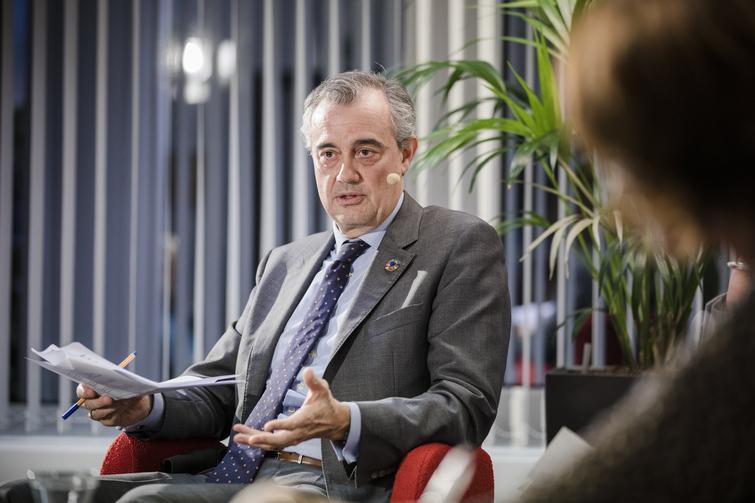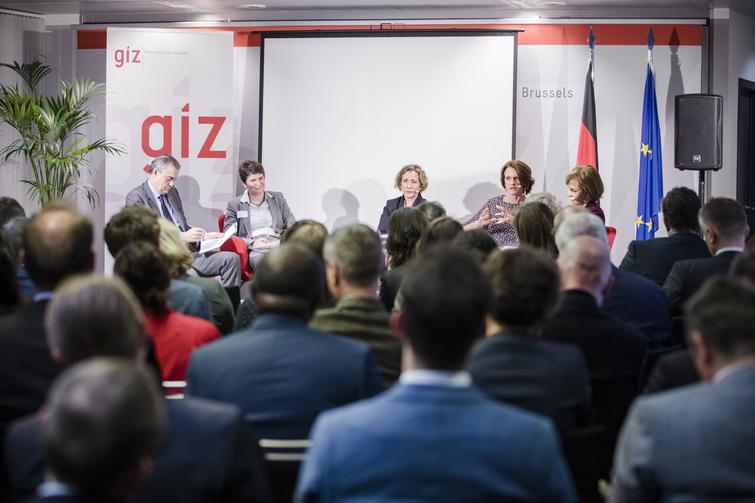New Year's Reception at the Brussels Representation
New Commission, New Parliament, New Year: A timely moment to discuss the future of EU international cooperation
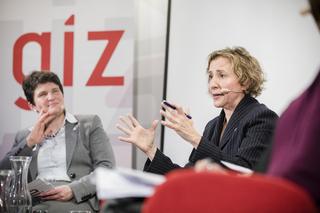
On 29 January, the GIZ Representation in Brussels invited high ranking guests from Brussel’s International Development landscape for its first-ever New Year’s reception to discuss trends for implementing organizations in international cooperation. Roughly 120 representatives of the European Commission, the European Parliament, EU Member States, African countries, civil society, think tanks and the private sector came to exchange with others on the topic.
A lively panel discussion
As the new College of Commissioners and European Parliament took office only recently, the New Year’s Reception was a timely occasion to discuss the trends and implications for implementing organisations in the field of international cooperation. Shada Islam, Director for Europe and Geopolitics at Friends of Europe, moderated an exciting panel with representatives of different perspectives on European cooperation:
- Tanja Gönner, Chair of the Management Board,
- Felix Fernández-Shaw, Director of International Cooperation and Development Policy at the European Commission (DG DEVCO),
- Aina Calvo Sastre, Director of Agencia Española de Cooperación Internacional para el Desarrollo (AECID) and President of the Practitioners’ Network, and
- Tanya Cox, Director of CONCORD Europe.
From development cooperation to international partnerships
The panel shared their perspective on the new title (“International Partnerships”) of the new Commissioner Jutta Urpilainen, which underlines the geopolitical character of Ursula von der Leyen’s Commission, as Felix Fernández Shaw pointed out. While Tanya Cox argued that the partnership terminology is not new but was already adopted during the negotiations for the Agenda 2030. She explained further that there has been a consensus since then that the stronger focus on working better together and including all stakeholders at all stages of policy processes is the best way to go forward in EU international cooperation. Ms. Gönner pointed out that better partnerships would require a more strategic integration of the diverse approaches in both the EU and the Member States. For the European Commission, too, it is important to include the implementing agencies in a more strategic manner instead of having “27 solutions for the same problem”, Mr. Fernández-Shaw underlined.
The role of implementing agencies
Implementing agencies’ huge wealth of experience when it comes to collaboration was highlighted by Ms. Gönner and Ms. Calvo Sastre. As AECID currently holds the presidency of the Practitioners’ Network, Calvo Sastre explained how cooperation and best practice sharing are at the core of the PN’s mission. Ms. Gönner mentioned the Euroclima+ programme and the Qudra programme as two examples of how GIZ successfully collaborates with the EU and other implementing agencies both in the field and in Brussels. From policymakers, she asked for clearer frameworks as implementors often deal with procedures, which have not been fully negotiated.
A new geopolitical reality
The geopolitically tense environment was another core theme of the debate and the following Q&A. Mr. Fernandéz-Shaw made the point that the EU needs to fight to matter and to continue being interesting for partner countries given that solutions are not exclusively European anymore. Along these lines, the audience raised the point that narratives and perceptions on Europe are changing in partner countries, which must lead to a change of implementing agencies’ strategic approach. Taking up the point, Ms. Gönner further underlined that the difference Europe can make lies in values, sustainability, quality, knowledge and technology while protecting human rights and the environment. Ms. Cox agreed, arguing that particularly human rights and the environment need to be prioritised within the scope of an increasing business interest and focus on investment in Africa.
